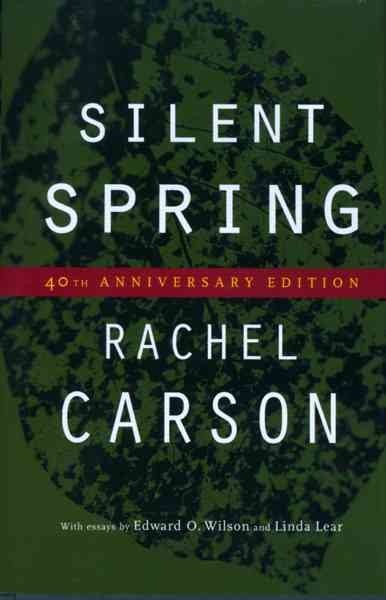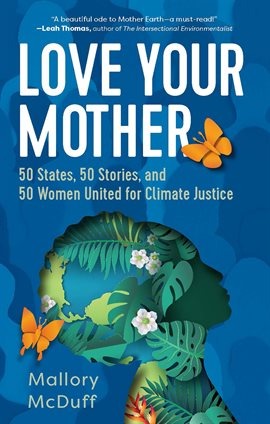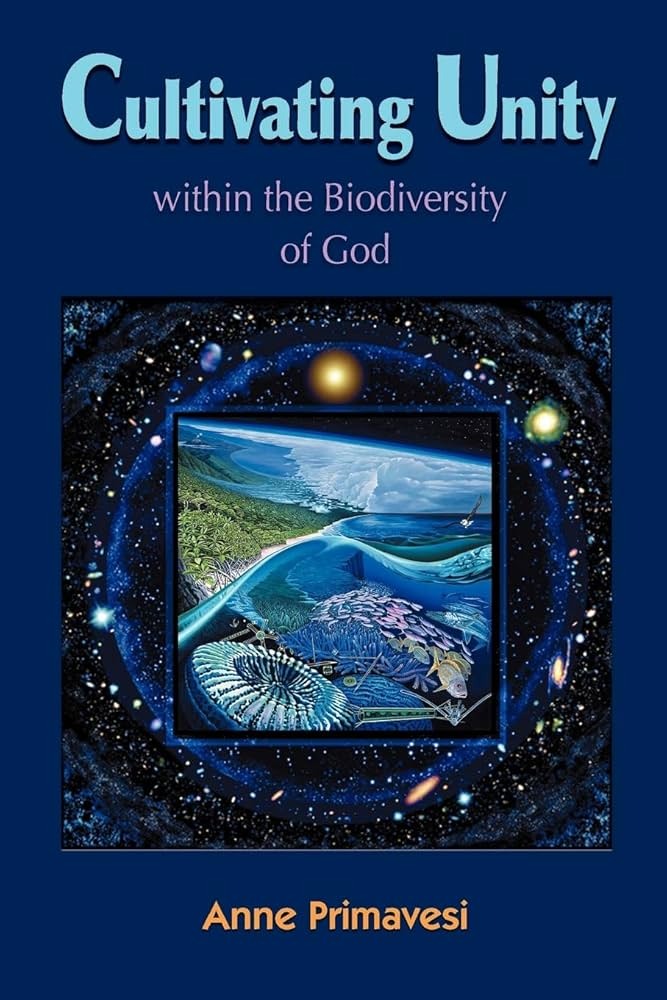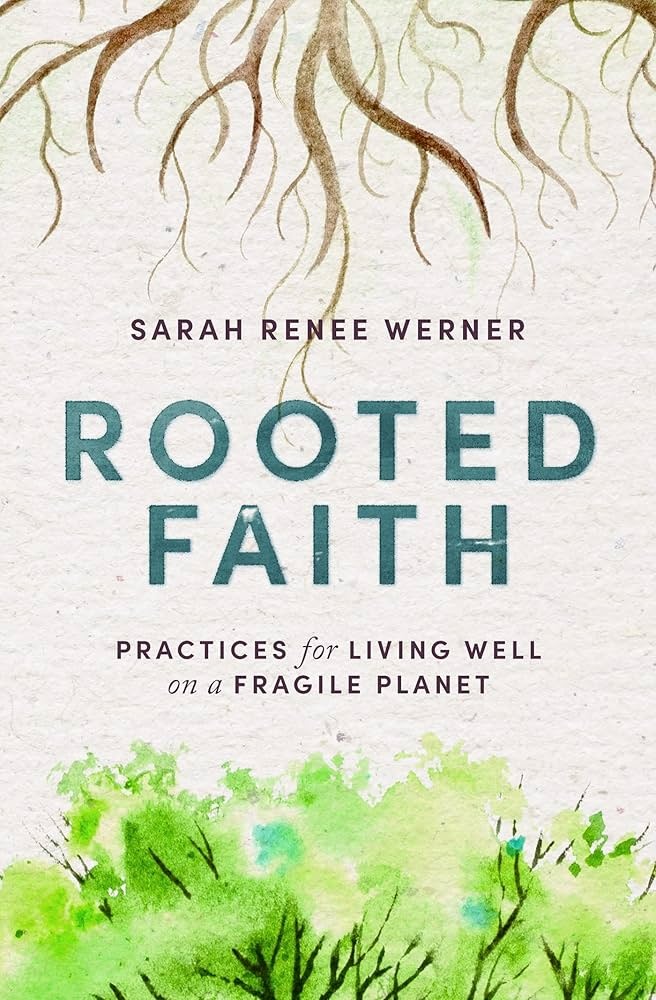5 Books to Grow Your Environmental Feminist Journey
Posted on August 19, 2024
by Melissa L
On (Tu) August 20 at 6 p.m. the Library will be hosting Feminism and Sustainability, Local Farming, and Eco-Activism – Steinem Sisters Collection Talking Circle at Sylvania Branch. Leading up to that event, we’ll start the conversation by interviewing local feminists and environmental activists. Our final interview is with Rev. Aaron Baughman, pastor of Holy Trinity Lutheran Church in South Toledo.
What is your name and what is your background in relation to environmental activism?
Rev. Aaron Baughman: Hello, my name is Rev. Aaron Baughman and I currently serve as the pastor of Holy Trinity Lutheran Church in South Toledo. At Holy Trinity, we are honored to serve over 100 families a month with our food pantry and clothing closet. This year we received a grant to build gardens to grow corn, squash, pumpkins, and sunflowers to provide fresh produce for our food pantry. Our gardens were built in a traditional indigenous fashion to honor our native ancestors. I hold a Masters in Divinity and a BA in Environmental Education. I was ordained in metro New York and attended my undergraduate studies at Warren Wilson College in Asheville, North Carolina. It was a privilege and a delight to attend Warren Wilson which is voted one of the top three most environmentally friendly colleges in the United States.
Since then my ministry has often highlighted environmental activism. At the first congregation I served in New York, my congregation hosted a Climate March and was the first faith community in our area to install solar panels on our building. We also started a Unity Community Garden and became a trailhead for the Outdoor Club.
In 2018, my spouse Patty and I received the Orange County of New York, Human Rights Activist of the Year Award for our work at that congregation. In 2021, Patty and I were selected to attend the World Council of Churches School on Government, Economics, Environment, and Management (G.E.M.) in Berlin, Germany, from our work with homelessness prevention and community development at the second congregation we served in Olympia, Washington. At the G.E.M. School, I presented on community gardens and ecumenical relationships.
Was there a specific event that brought the issue of environmentalism to life for you?
Rev. Baughman: For me, environmentalism has always been my passion. In my youth, I first sought to become an architect, in hopes of building a more sustainable future. This later shifted to environmental sciences, then environmental education.
During my undergraduate studies my advisor at Warren Wilson, Dr. Mallory McDuff, who is one of the leading environmental education professors, published two books Sacred Acts and Natural Saints. These books share stories of people in faith communities working to define a new movement, where honoring creation means protecting the planet. Dr. McDuff’s most recent book is titled Love Your Mother, where she shares stories of women of diverse ages, backgrounds, and vocations – one from each of the fifty US states – who serve as inspiration for a new kind of leadership focused on the heart of the climate crisis.
Mallory McDuff taught me the importance that faith communities have for environmental activism to succeed. This led me to discern a call to seminary and while in seminary I established a weekly vegetarian dinner where we would invite speakers to speak on environmental issues. These events were run alongside an established environmental advocacy group on campus led by Dr. Lisa Dahill, who is now the chair of Transformative Leadership and Spirituality Department at the Hartford International University for Religion and Peace. Dr. Dahill focuses on the importance of connecting faith communities to their local watersheds and to the Earth. Dr. Dahill and I worked together to bring climate scientists from the Byrd Polar and Climate Research Center on our seminary campus.
These scientists reminded me that without faith leaders (who bring ethics and values to the conversation about the Earth) their objective research would not have any way to connect with people. Through this journey, I have come to recognize that as a faith leader, I have the opportunity to help change the architecture of how we see our relationship with the earth.
Another important female theologian in my journey has been Dr. Anne Primavesi, who wrote the book, Cultivating Unity: Within the Biodiversity of God. In this book Dr. Primavesi looks at how our Christian faith has misinterpreted ancient texts to believe that we are to be stewards of the Earth, which would infer that we have dominance over the Earth. Rather, ancient texts teach us to cultivate unity with the Earth and celebrate the great biodiversity God has created.
How have you seen the environmentalism community change during your career? What has been positive? What do you see that still needs to shift?
Rev. Baughman: Environmental advocacy within faith communities has seen a huge increase over the past decade. It has been refreshing to see the Earth at the center of many faith communities’ worship and ministry. This can be seen in the Christian community with the Season of Creation. This movement has created a new season of the church year that celebrates the Earth and highlights environmental advocacy. This ecumenical movement is now celebrated in the month of September by many congregations. The greatest shift that still needs to occur across denominations and even within my own is for people to focus on the importance of our words. We must shift from language that still shows incorrectly that God gave us dominance over the Earth. Instead, we must move to language that more accurately describes how God calls us to live in harmony and cultivate unity with the Earth.
What are 5 books that you would recommend that address environmental activism and/or ecofeminism?
Rev. Baughman:
Silent Spring – the classic written by Rachel Carson was first published in 1962 and really spearheaded the Environmental Advocacy Movement.
Love Your Mother – written by Dr. Mallory McDuff in 2023 this book lifts up women who are poets, physicians, climate scientists, students, farmers, writers, documentary filmmakers, and more. All women whose leadership focuses on the heart of the climate crisis.
Cultivating Unity within the Biodiversity of God – In this 2011 book Anne Primavesi looks at ways that the Christian inheritance has contributed to our limited respect for biodiversity.
Church of the Wild: How Nature Invites Us into the Sacred – Victoria Loorz is the founder and director of the center for Wild Spirituality and in this 2021 book Victoria looks at biblical narrative through an eco-spiritual lens.
Rooted Faith, Practices for Living Well on a Fragile Planet – This book was written by Sarah Renee Werner, a Warren Wilson College Graduate who is now a Mennonite pastor in 2023. It serves as a starting point for how we can take seriously the biblical charge to live more peacefully and gently on our fragile planet.
What are 5 things readers can do to support environmentalism/climate action/environmental justice?
Rev. Baughman:
1. Become a Vegan or Vegetarian.
Doing so greatly decreases the release of greenhouse gases. Our current rate of consumption of meat is not sustainable. If you are not ready to give up meat completely, you can also try things like Meatless Mondays to lessen your meat consumption.
2. Ride your bike to lessen gas consumption, reduce road congestion, and lessen sound pollution.
Commuting on your bike is way better than traveling by car; it is also way more fun. If you don’t think you have it in you to bike long distances you can also invest in an ebike.
3. Compost. Compost your food and yard waste.
In Toledo, we now have drop-off compost locations at some of our Metroparks. If you are not able to compost at home this is a great option to ensure that our leftovers don’t end up in the dump. Unlike recycling, you can be assured with composting that 100% of what you contribute will be composted.
4. Reduce.
Reduce how much you consume. Refuse to buy items that have lots of plastic packaging. Reduce the amount of waste you create.
5. Lastly, resist mainstream consumer based environmental advocacy.
If you do some research on carbon footprints, you will find that it was popularized by large oil and gas companies. This was an attempt to pass on the guilt of environmental degradation to consumers. We must hold large corporations, industries, and businesses accountable. Their environmental degradation far outweighs that of consumers.
—
Find your next great read in the Steinem Sisters Collection, located in the Fact and Fiction department of Main Library. If you would like to get involved with the Steinem Sisters Collection, join our newsletter email list to keep up on all things Steinem Sisters.
Did you like this blog post? Keep up to date with all of our posts by subscribing to the Library’s newsletters!
Keep your reading list updated with our book lists. Our staff love to read and they’ll give you the scoop on new tv-series inspired titles, hobbies, educational resources, pop culture, current events, and more!
Looking for more great titles? Get personalized recommendations from our librarians with this simple form.






